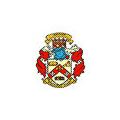Studies & Degrees in Nutrition and Metabolism
Choose where you would like to study Nutrition and Metabolism:
AustraliaBrazilCanadaIndiaMexicoPortugalRussiaSpainThe United KingdomThe United StatesUkraineNutrition and Metabolism Study Programs
Level: Undergraduate Bachelors
Location: Villanueva de la Cañada
Studies in nutrition and metabolism mainly seek to understand the way in which the human body breaks down, assimilates and disposes nutrients and other materials. It is concerned with the examination and treatment of both metabolic normalities and abnormalities, as well as dietary research, eating disorders and the medical implications of nutrition and metabolism.
A common place to find a course of study in nutrition and metabolism is at a college, university or technical school, where the course can either be offered as a single major or as part of a broader science major. Many studies in nutrition and metabolism, for example, fall under majors such as exercise science. Nutrition and metabolism can be studied at a bachelor’s or master’s degree level. Universities that specialize in medical or nutritional research are ideal for students wishing to stay up-to-date on nutritional knowledge and technology.
Some secondary schools also offer basic courses in nutrition and metabolism. Health and service institutions, organizations and research facilities will sometimes offer publicly accessible workshops for a variety of ages. Some of these workshops, however, are only applicable to those already registered in the organization or working in a medical field. Online educational tools are available, both in basic courses and associate degree programs.
Skills, Qualifications, and Prerequisites for Studies in Nutrition and Metabolism
To study this course at a university, college or technical institution, a candidate must meet the admission requirements outlined by the higher education institution. This usually includes earning a secondary school completion certificate and achieving a passing score on an aptitude test or entrance exam. Workshops vary in their requirements for entry and may be accessible to the public or to current employees, company candidates or experts from certain fields.
Nutrition and metabolism requires a significant amount of research and candidates should be able to read and interpret large amounts of text. A solid background in the basic sciences – such as chemistry, biology and human anatomy – highly benefits students in this field. Well developed interpersonal and communication skills also aid in a student’s success, as much of their work will require interaction with patients and clients.
Other qualities and skills helpful in nutrition and metabolism studies include:
- Background in a sport or exercise program.
- Good memorization rate.
Skills and Qualifications Acquired from Studies in Nutrition and Metabolism
Students in this field of study have the option of specializing in a certain nutritional or metabolic area, including eating disorders, obesity, exercise science, nutritional therapy, clinical nutrition and even marketing. A course of study in nutrition and metabolism alone with usually develop skills and knowledge in the following areas:
- Biochemistry.
- Physiology.
- Nutritional elements of food (vitamins, minerals, etc.).
- Absorption and excretion of nutrients.
- Metabolic pathways (digestive, etc.).
- Diseases or other factors affecting metabolism.
- Macro and micronutrient metabolism systems.
- Public health issues.
- Exercise methods/benefits.
Careers for Studies in Nutrition and Metabolism
Students who pursue a course in nutrition and metabolism are prime candidates for health services and therapy work. Many become dieticians, personal coaches or dietary consultants – fields of work that can be practiced independently or for a company-run dieting program. Health and service organizations Laboratories and government programs will also employ these students for nutritional or medical research. By pairing nutrition and metabolism studies with other medical courses, students can also become doctors, pediatricians or nurses.


